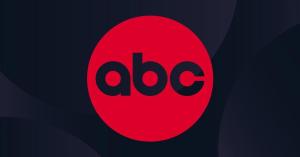The coronavirus emergency relief checks will begin going out to many Americans in the next few weeks, but for some, they are not coming at all. The federal government’s $2 billion COVID-19 relief stimulus package includes payments of up to $1,200 for individual Americans, as long as they meet certain criteria. Huge groups like college students, immigrants without Social Security numbers and even some adults with disabilities do not qualify, according to a report by NBC News.
The government has been moving fast to get cash into the hands of Americans, ensuring that they can afford food, housing and other basic necessities during this unprecedented economic shut-down. However, there are some demographics that will fall through the cracks, reporters point out. In some ways, lawmakers had to accept that these people would fall through the cracks in order to get their stimulus package out as soon as possible. To do that, they simply based eligibility for the stimulus checks on tax returns.
Videos by PopCulture.com
This is a problem for Americans who do not file tax returns. Many people do not file their own tax returns for one reason or another, or are claimed as a dependent on someone else’s filing. Some may be in a position to genuinely not need the relief being offered, but others may be lost without it.
The stimulus checks will be worth up to $1,200 for adults who filed tax returns in 2018 and 2019. Those who made $75,000 or less will get the full amount, while those who made more will get commensurately less aid. Adults who made $99,000 or more will get no stimulus check.
Children are not completely discounted from the bill, either. Parents with children aged 17 or less will get $500 for each child. However, adult children do not count. This already has some people frustrated with the way coronavirus relief is being handled. Here is a breakdown of who will fall through the cracks in the federal government’s coronavirus relief payments.
College Students

One simple example is full-time college students. While many young adults may have been living independently and surviving off of loans, many students have been claimed as dependents on their parents’ taxes, so will not qualify for the same relief as working adults. According to NBC News, about 20 million people fall into this category.
“They’re not on their own. And so you feed them and you still provide for them,” said Susan Anderson, a Texas mother with two children in college. “So you’re not getting anything, and they’re not getting anything. There’s a huge gap.”
If her children were 17 years old or younger, Anderson would have at least gotten $500 for each of them under the bill, but since they are legal adults, she will not.
Disabled Adults
By the same token, any disabled adults who are claimed as dependents by their family will not qualify either. A Delaware woman named Jennifer Irwin told reporters that her 21-year-old son is nonverbal and is living in a home for disabled adults selected for him by the state. He will not get his own check, nor will Irwin get the $500 credit on his behalf.
“Just because he’s not under 17 doesn’t mean he should be excluded from the credit parents are getting. He’s still entirely dependent. I still buy all his clothes,” Irwin said. “It’s discouraging. I mean, we struggle enough as it is.”
Dependent Seniors

Seniors who live with their children fall under a similar rule, in some instances, if they are claimed as dependents. They will not get their own checks nor with their families get a $500 credit to help care for them. Seniors who live on social security are still eligible, however, as are those who make less than the $99,000 income cap.
Some Immigrants
There are also huge swaths of immigrants who do not have Social Security numbers yet that will not get checks either. They may be long-term residents with green cards, or on H-1B and H-2A visas, but they will not qualify for economic relief. Even non-citizens with Social Security numbers will get checks, however. Meanwhile, undocumented immigrants do not qualify for the relief payment at all.
Parents With Partial Custody

Parents with certain custody agreements may have a hard time finding the $500 check for their child. In many cases, these parents take turns claiming the child as a dependent on their taxes from year to year. Depending on the last year where the child was claimed, the $500 payment may only go to one parent. If that’s the case, they may have to work with their ex to divide up the money.
Parents Who Owe Child Support
Almost all forms of debt are ignored by the coronavirus economic relief bill — including back taxes and other things that may count against a tax refund. However, according to NBC News, the government is taking child support into consideration here. Parents who owe back child support will have that amount deducted from their checks.
Babies Born in 2020

Finally, the last group not qualifying for stimulus checks is babies born in 2020. Infants that were born this year do not appear on their parents’ 2019 taxes, and therefore will not be counted when the IRS is calculating payments. Reporters guess that the credit for these babies may be added to their parents’ 2020 tax returns next year, but in terms of fast cash for relief, it is not coming. For the latest information on the coronavirus pandemic, visit the CDC’s website.








